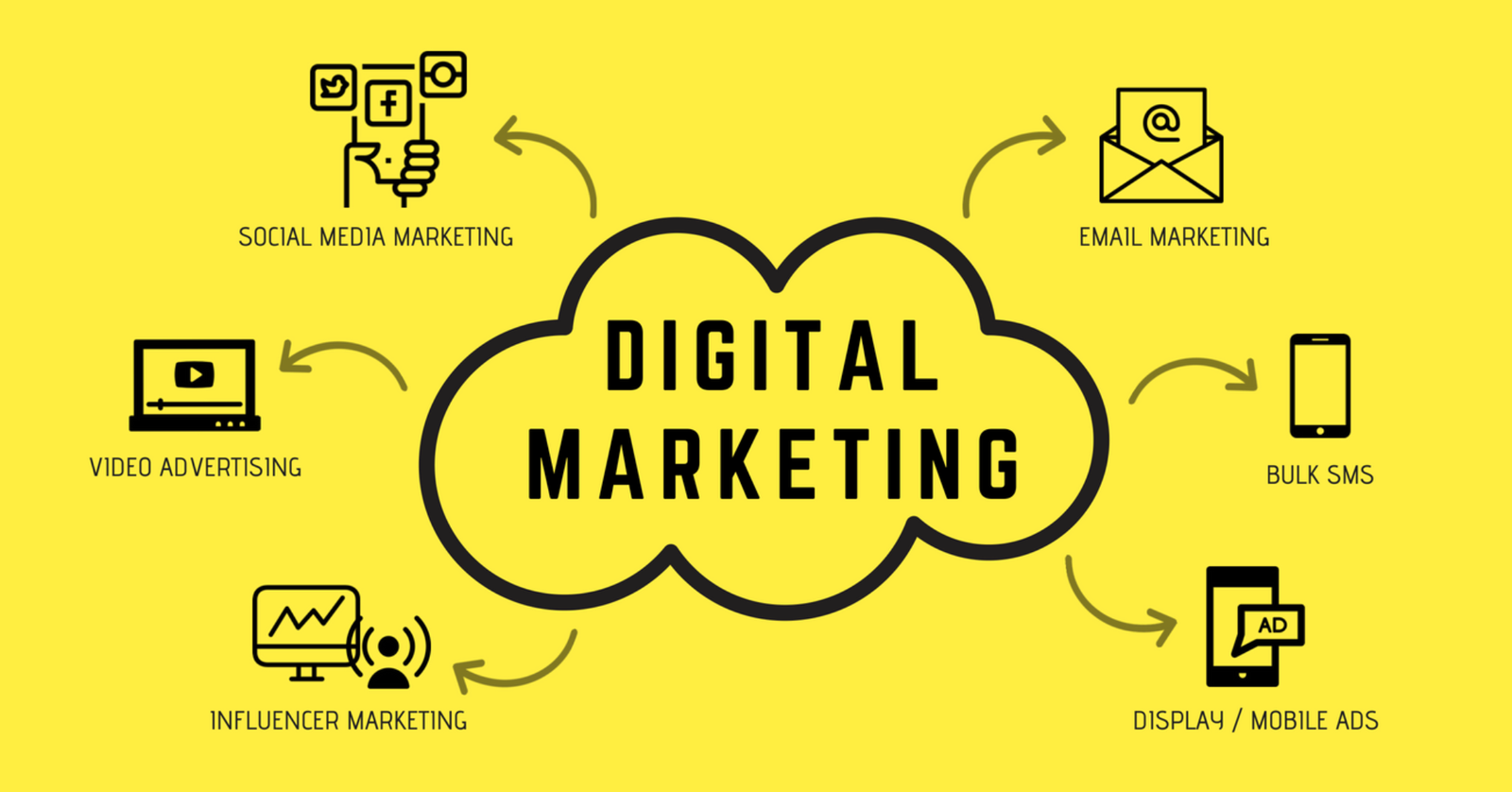The Who, What, Why, & How Of Digital Marketing
Category: DIGITAL MARKETING | 12th July 2023, Wednesday

In Our Increasingly Interconnected World, The Significance Of Digital Marketing As A Vital Component Of Any Thriving Business Strategy Cannot Be Overstated. With The Widespread Use Of The Internet And The Ever-increasing Number Of Online Platforms, Businesses Have The Opportunity To Reach A Global Audience Like Never Before. But What Exactly Is Digital Marketing, Who Is It For, Why Is It Important, And How Can Businesses Effectively Leverage Its Power? Let's Delve Into The Who, What, Why, And How Of Digital Marketing.
Who Is Digital Marketing For?
Digital Marketing Is For Businesses Of All Sizes And Industries. Whether You're A Small Local Store, A Multinational Corporation, A Nonprofit Organization, Or A Solopreneur, Digital Marketing Offers A Level Playing Field. It Allows Businesses To Reach Their Target Audience Directly, Build Brand Awareness, And Generate Leads Or Sales. Whether You're Targeting Consumers Or Other Businesses, Digital Marketing Provides The Tools And Platforms To Connect With Your Ideal Customers.
Digital Marketing Refers To The Comprehensive Range Of Marketing Strategies And Activities That Leverage Digital Channels And Technologies To Promote And Showcase Products, Services, Or Brands. It Involves Various Online Strategies, Such As search Engine Optimization (SEO), Search Engine Marketing (SEM), Content Marketing, Social Media Marketing, Email Marketing, Influencer Marketing, And Many More. These Strategies Leverage Websites, Search Engines, Social Media Platforms, Email Services, And Other Digital Channels To Connect With Potential Customers And Engage With Existing Ones.
Why Is Digital Marketing Important?
The Importance Of Digital Marketing Cannot Be Overstated In Today's Digital Landscape. Here Are Some Key Reasons Why It Is Crucial For Businesses:
-
Reach And Visibility: Digital Marketing Enables Businesses To Reach A Global Audience, Regardless Of Their Physical Location. With Billions Of People Using The Internet, Digital Channels Provide Unparalleled Opportunities For Businesses To Expand Their Reach And Increase Visibility.
-
Targeted Advertising: Traditional Marketing Methods Often Rely On Broad, Blanket Advertising, Hoping To Reach The Right Audience. Digital Marketing Allows For Precise Targeting Based On Demographics, Interests, Behaviors, And Other Criteria. This Ensures That Your Marketing Efforts Are Focused On The People Most Likely To Be Interested In Your Products Or Services.
-
Cost-Effectiveness: Digital Marketing Often Offers A Higher Return On Investment Compared To Traditional Marketing Channels. With Proper Planning And Implementation, Businesses Can Achieve Significant Results With A Fraction Of The Cost Required For Traditional Advertising Methods.
-
Measurable Results: One Of The Significant Advantages Of Digital Marketing Is The Ability To Track And Measure The Effectiveness Of Campaigns In Real-time. Digital Analytics Tools Provide Valuable Insights Into User Behavior, Engagement, Conversions, And Other Metrics, Allowing Businesses To Make Data-driven Decisions And Optimize Their Marketing Strategies Accordingly.
How To Leverage The Power Of Digital Marketing?
To Effectively Leverage Digital Marketing, Businesses Should Consider The Following Steps:
-
Define Goals: Determine What You Want To Achieve With Your Digital Marketing Efforts. Whether It's Increasing Website Traffic, Generating Leads, Driving Sales, Or Building Brand Awareness, Clear Goals Will Guide Your Strategies And Help Measure Success.
-
Know Your Audience: Understand Your Target Audience's Demographics, Interests, Preferences, And Online Behavior. This Information Will Enable You To Create Personalized, Relevant Content And Tailor Your Marketing Campaigns To Resonate With Your Audience.
-
Develop A Comprehensive Strategy: Create A Digital Marketing Strategy That Aligns With Your Goals, Target Audience, And Available Resources. It Should Encompass Various Channels, Such As SEO, Social Media, Content Marketing, Email Marketing, And Paid Advertising, To Ensure A Holistic Approach.
-
Consistent Branding: Maintain A Consistent Brand Identity Across All Digital Channels. Use Consistent Logos, Color Schemes, Fonts, And Messaging To Establish A Recognizable Brand Image And Build Trust With Your Audience.
-
Engage And Interact: Actively Engage With Your Audience Through Social Media, Email, Blog Comments, And Other Platforms. Encourage Discussions, Respond To Queries, And Provide Valuable Content To Establish Yourself As An Authority In Your Industry And Foster Customer Loyalty.
-
Analyze And Optimize: Continuously Monitor And Analyze Your Digital Marketing Efforts Using Analytics Tools. Identify What Works And What Doesn't, And Make Data-driven Adjustments To Optimize Your Campaigns For Better Results.
In Conclusion, Digital Marketing Has Revolutionized The Way Businesses Connect With Their Audience. It Offers Unparalleled Reach, Precise Targeting, Cost-effectiveness, And Measurable Results. By Understanding The Who, What, Why, And How Of Digital Marketing, Businesses Can Leverage Its Power To Grow Their Brand, Reach New Customers, And Achieve Their Marketing Objectives In The Digital Age.
Tags:
#DigitalMarketing #MarketingStrategy #OnlineAdvertising #TargetedAdvertising #BrandVisibility #Audie
